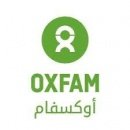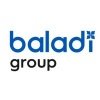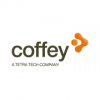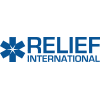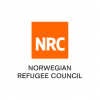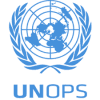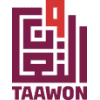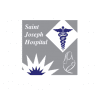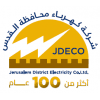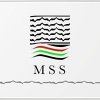Baseline Assessment Consultant For Empowering Green Busines...
Terms of Reference (ToR)
Baseline Assessment Consultant
For the project: Empowering Green Businesses: Resilience and Adaptation to Natural and Occupation Shocks
1. Introduction
This Terms of Reference (ToR) sets out the scope of work, key responsibilities, and expected deliverables for a consultant to conduct the baseline assessments for the “Empowering Green Businesses: Resilience and Adaptation to Natural and Occupation Shocks” project. The project aims to strengthen the resilience and improve the livelihoods of vulnerable communities in the West Bank by promoting sustainable employment opportunities for youth and women in environmentally friendly agri-food enterprises. It also seeks to enhance the capacity of small and medium-sized enterprises (SMEs) and cooperatives by improving their access to quality business development services and financial instruments.
2. project background
Funded by the Belgian Government through the Belgian Agency for International Cooperation (Enabel), the two-year “Empowering Green Businesses” project (Jan 2025 – Dec 2026) aims to strengthen resilience and improve livelihoods of vulnerable communities in the West Bank. It focuses on promoting job creation and retention for youth and women in environmentally sustainable agri-food businesses, while strengthening the capacities of small and medium-sized enterprises (SMEs) and cooperatives. This will be achieved through improved access to quality business development services and financial instruments, fostering inclusive and green economic growth.
Oxfam is implementing the project in partnership with PalVision, the Economic & Social Development Center of Palestine (ESDC), and the North Hebron Chamber of Commerce. Together, they will support a total of 137 agri-food businesses—including 120 SMEs and 17 cooperatives—selected based on their potential for growth, commitment to inclusive employment, and readiness to adopt circular economy practices.
Specifically, 80 enterprises (70 SMEs and 10 cooperatives) will be supported in the North and Middle Governorates, covering Tulkarem, Qalqilya, Jenin, Tubas, Salfit, Ramallah, Jericho, and the Jordan Valley. An additional 57 enterprises (50 SMEs and 7 cooperatives) will be supported in the Southern Governorates, including Hebron, Jerusalem, and Bethlehem. Cooperatives selected for support will demonstrate strong potential to mobilize community members—particularly vulnerable women and youth—and to integrate sustainable, inclusive business practices.
The project’s theory of change is built around three interconnected results:
Result 1: Enhanced knowledge and practices on green transition and decent working conditions through tailored and comprehensive business development support.
Result 2: Improved financial viability, turnover, and sustainability practices of selected businesses through access to appropriate financing mechanisms.
Result 3: Strengthened market access and strategic partnerships for local green supply chains.
To achieve these results, the project offers a comprehensive support package that includes tailored technical assistance, capacity-building sessions before and after grant disbursement, peer-to-peer and business-to-business learning, and improved access to market information through partnerships with business support hubs and resource centers. Awareness sessions on decent working conditions, in alignment with ILO standards, will also be delivered.
The project further promotes youth employment by building 21st-century skills, fostering entrepreneurship, and supporting sustainable income-generation activities. By targeting both direct beneficiaries (businesses and cooperatives) and indirect ones (workers, clients, and community members), it contributes to a more inclusive, resilient, and sustainable local economy in the West Bank.
3. Objectives of the assignment
The main objective of this assignment is to conduct a baseline assessment focused on a select number of indicators from the project’s logframe. The assessment will provide benchmark data that will serve as a reference point for future measurement of change and progress at the end of the project. It is expected to help validate targets, inform implementation strategies, and support the monitoring and evaluation (M&E) framework.
Specifically, the baseline aims to:
1. Establish baseline values for selected outcome and impact-level indicators.
2. Generate quantitative and qualitative data that reflects the initial status of targeted cooperatives, SMEs, and beneficiaries prior to project interventions.
3. Provide insights into current livelihoods, access to finance, business practices, awareness levels, and performance metrics that are relevant to the project’s thematic focus on inclusive economic empowerment and green, decent, and sustainable growth.
For The Full TOR and More Details Please Click Here.
The Deadline for Submission is June 30 2025 COB.




